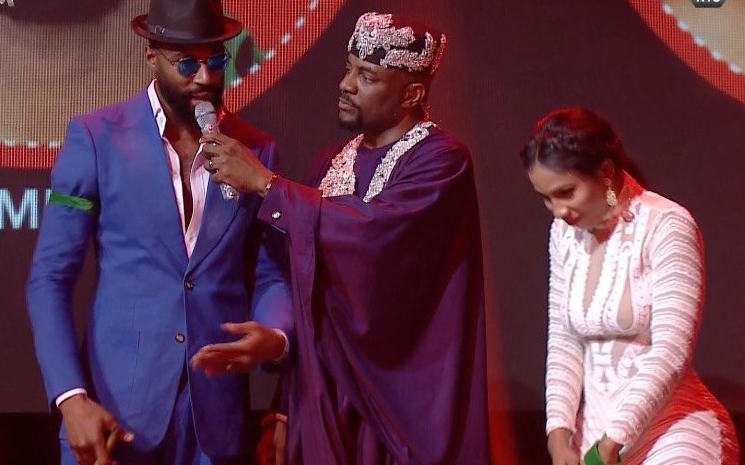The newly inaugurated board of the African ICT Foundation (AFICTF) being chaired by Tony Ojobo has set agenda for innovation in technology in Africa.
Chairman of the board, Ojobo, who is also President of AFICTF, during the inauguration, noted that Africa needs a declaration of emergency in the area of ICT developments and innovation.
In his keynote address on the occasion of the inauguration of the board of AFICTF, Ojobo said, “At the level of African Union, there has to be a concrete policy direction for ICT development and innovations in the continent”.
The keynote address reads in part: “Ladies and gentlemen, permit me to note that Africa needs a declaration of emergency in the area of ICT developments and innovation. Her people have been left largely behind in the revolution taking place in the ICT sectors around the world.
“The advancement in technology in developed countries has translated to major economic gains and enhanced standard of living for her citizens. The innovations being witnessed today in the sector is reverberating world over, thus opening new business opportunities for companies in Europe, Asia and North America.
“Unfortunately Africa seems to be in deep slumber while other continents are on the march to prosperity for posterity. The sad thing is that most of the innovations find their way to Africa which has remained a major consumer of these innovations. This state of affairs must be addressed by African countries.
“At the level of African Union, there has to be a concrete policy direction for ICT development and innovations in the continent. This can be done through the various regional Organisations such as West Africa Telecommunications Regulators Association (WATRA), Southern Africa Regulators Association (SATRA) and other regional bodies in East Africa, North and Central Africa.
“The continent faces serious challenges arising from population explosion and rising unemployment. This portends danger for the continent if not addressed. The rate of rise in criminal activities can be traced to unemployment in Africa. This underscores the need for a concrete African ICT Roadmap to encourage innovation and job creation.
“The rise in ICT Innovation Hubs in the Continent is therefore a welcome development in this direction. Companies such as CcHub, Andela and a number of ICT Hubs around the Continent gives us hope.
“Recently, CcHub established an innovation hub in Rwanda with the active support of the Rwandan government. Rwanda has become the beacon of hope and the poster boy of ICT innovations and development in Africa. The reports of ICT Innovations coming from Rwanda should be studied by other African countries.
“I believe that in the near future AFICTF May have to pay a visit to that country to see what can be adopted in formulating ICT policies for African countries.
“Ladies and Gentlemen, that said, I wish to highlight areas I consider important as we embark on this Journey. Four critical factors are necessary for ICT development in the continent, which I call the 4As of ICT development and deployment, namely; Awareness, Access, Adoption and Application.
“The need for the nations in the continent to be aware of the capabilities that ICT offers in terms of GDP growth and job creation is imperative. Access is critical to making this happen, especially in terms of availability and affordability. Our leaders need to embrace the use of ICT through its adoption for ease of business and processes required for industrial growth. Technology not applied cannot deliver the desired dividends.
“In this connection, the Foundation will work to advocate for policy development in the areas of emerging technologies such as; Internet of Things ( IoTs), Artificial Intelligence, Big data, Robotics, etc.
“Our ability to achieve the desired objectives will require the following: Partnerships/Collaborations, Funding, Advocacies and sensitisation, and Capacity building/Training.
“True partnerships between governments and non-government actors are essential to addressing a problem as complex as ICT Penetration in Africa. No government, nation or agency can meet this challenge alone, hence the synergy through the African ICT Foundation to make information and communication technology more affordable and reachable for Africans everywhere.
“Our inexhaustible focus is at the intersection of technological innovations such as telecommunications, information technology and data, life sciences, trade and globalization, agricultural Biotechnology and clean energy.
“It is poised towards providing high-quality information analysis, policy pragmatism, and recommendations that can be trusted.
“These projects shall be implemented through grants and are designed to create demand and promote usage of ICTs in unserved and underserved communities and groups.
“The projects involve the provision of end-user devices to complement the telecommunication infrastructure that are deployed under the Connectivity Programme.
“For the Next two Years we shall consciously be making efforts towards holistic involvement in the following activities:
“Engage youths in research and educational activities that involves setting the policy agenda on technological innovations, information and communication technology, trade & globalization and clean energy.
“Getting private sector support on critical industry issues that affect the growth of Africa’s economy
“Working with policymakers to develop and promote policies and ideas, capitalising on the tremendous economic and social benefits ICT provides for Africans.
“Adherence to high standard of research, empowerment and integrity with an internal code of ethics grounded in analytical rigor, policy pragmatism, and independence from external direction or bias.
“Promote skills sustainable for the development of African nationhood
“Reduce the level of illiteracy and poverty in the society
“Engage youths on IT exchange programmes of poverty alleviation and economic right
“We shall encourage and support the emergence of ICT Innovation Hubs in the continent, which will serve as platforms for growth of startups with capacity for development of disruptive innovations.
“Fellow members of the Board, Ladies and gentlemen, it is clear from the above that we have very serious job on our hands, it is my hope that this board will be able to accomplish the above objectives.
“I feel honoured to have been nominated to chair this board. I will count on the cooperation of my fellow board members.
“I commit to giving this assignment my best shot by the grace of God. Thanks for coming for this inauguration. I wish you all a happy inauguration and successful tenure.


